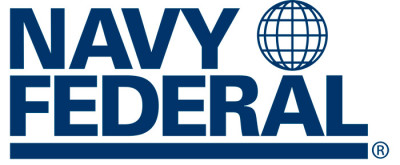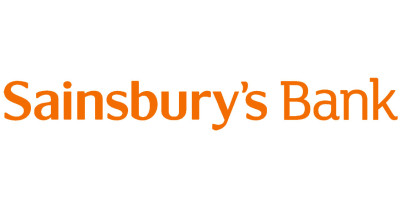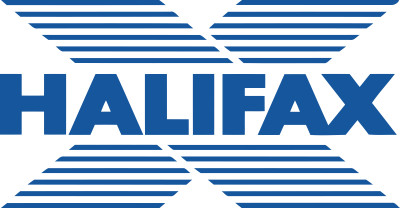Auto Loans for a new car
A car is an expensive purchase, but choosing the right lender can save you thousands of dollars in interest charges and fees. Plus, you want your car shopping experience to be easy and transparent so that you’re confident about the terms you’re getting.
Best Auto Loans for a new car

LightStream provides an attractive option for personal loans, especially if you have a strong credit history. With competitive interest rates and a lack of fees, it's a borrower-friendly choice.
Pros and cons

myAutoloan.com, established in 2003, operates as a direct lending marketplace that serves as an intermediary, gathering loan offers from up to four lenders on behalf of loan applicants.
Pros and cons

Navy Federal extends another proprietary loan option called Homebuyers Choice, tailored for nonmilitary borrowers who are eligible for credit union membership (including civilian employees of the Department of Defense).
Pros and cons

PenFed's car buying service enables applicants to find a car online, request member pricing from a dealer, apply for financing online, receive approval, and then visit the dealership.
Pros and cons

HSBC offers Personal, Premier, Car, Home Improvement, and Debt Consolidation loans with competitive rates and exclusive Premier benefits.
Pros and cons

M&S Bank presents a diverse range of loans that offer flexibility in both borrowing amounts and repayment periods, featuring representative APRs.
Pros and cons

Santander offers various loans for personal needs, cars, home improvements, consolidating debts, and special occasions.
Pros and cons

Sainsbury's Bank, a subsidiary of the esteemed UK supermarket, offers a diverse range of financial services, including loans, credit cards, insurance, and savings accounts, with a focus on customer convenience and competitive solutions.
Pros and cons

Halifax's personal loans are tailored for various purposes, such as major purchases or consolidating debts, without the requirement of collateral.
Pros and cons

Zopa Bank, renowned for its tech-savvy approach combined with financial acumen, is committed to offering simple, transparent, and customer-focused financial products.
Pros and cons
Can I negotiate my rate on an auto loan?
You generally can (and should) negotiate interest rates when shopping for a car loan. If you’re applying for a loan through a dealer, they gather your information and send it to several potential auto lenders. The lenders can respond with proposed interest rates. However, the rate the dealership actually gives you can be higher than what the lender proposed. This is because the dealer may choose to charge you more for handling the financing. To add to that, the dealer isn’t legally required to give you the best rate in the first place.
For that reason, it’s always a good idea to try and negotiate the interest rate just like you would the price. Or, if you’re dealing directly with the lender, you can negotiate with them too. Some lenders can try to beat any offer you get from a competitor, so it pays to shop around and gather several financing options.
FAQ
Where Can I Get an Auto Loan?
You can obtain an auto loan through a dealer in a dealer-arranged financing agreement or directly from an online lender, credit union, or traditional bank. Some dealers also offer in-house financing for car buyers with bad credit.
How does a low car loan rate save me money?
When you make an auto loan payment every month, a portion of that money goes to pay for the principal, or the actual balance of the car’s price. Another portion of the payment goes to pay for interest, or the amount of money the bank charges you for the ability to borrow money. The higher the interest rate, the more of your monthly payment that gets shaved off to pay the bank instead of paying for your car.
What is the best place to refinance an auto loan?
The best place to refinance your auto loan is the bank or lending institution that gives you the best rate and most favorable terms. Local banks and credit unions frequently offer promotional rates to attract more loan business, so you may find a great rate in your neighborhood. You can also shop around online to find all of the options available to you.
What credit score is needed to buy a car?
To get the most favorable financing terms when buying a car, you’ll need at least good or excellent credit — a credit score of 670 and greater. That said, it’s not impossible to get approved for a car loan, even if your credit leaves a lot to be desired. Lenders have different credit score requirements, and many work with customers with bad or fair credit. Plus, they consider multiple other factors when reviewing your loan application, such as your income and other debts.
Where can I get an auto loan?
When it comes to seeking vehicle financing, there are three main avenues to explore:
- Online Lenders: Online lenders offer a convenient way to compare various financing options. They often provide easy access to rate comparisons, loan terms, and special features. Many online lenders are known for their swift funding processes and user-friendly online applications.
- Banks or Credit Unions: If you appreciate the traditional banking experience and prefer in-person interactions, banks and credit unions are excellent choices for securing vehicle financing. These institutions offer the advantage of face-to-face consultations and personalized service.
These options provide a starting point for individuals looking to secure financing for their vehicles. Each option has its own set of advantages, and the choice ultimately depends on the borrower's preferences and needs.
What is gap insurance and do you need it?
Gap insurance, or Guaranteed Asset Protection, serves as a valuable supplement to your standard car insurance. Its primary function is to cover the disparity between the payout from your insurance provider in case of your vehicle being written off or stolen and the initial purchase price of the vehicle. It's crucial to note that gap insurance complements standard car insurance and doesn't replace it.
When is Gap Insurance Essential?
Gap insurance proves beneficial in various scenarios:
- Large Loans: If you've taken a substantial loan to finance your car, gap insurance becomes valuable. In the event of theft or write-off, it covers the outstanding finance amount.
- Depreciation Concerns: Gap insurance is advantageous when there's concern about your car's depreciation. New cars can lose 15-35% of their value in the first year. Gap insurance ensures a more substantial payout if your depreciated car is written off.
In summary, gap insurance offers financial protection by bridging the gap between your standard insurance payout and the actual cost or outstanding finance of your vehicle, making it a prudent choice for certain car owners.